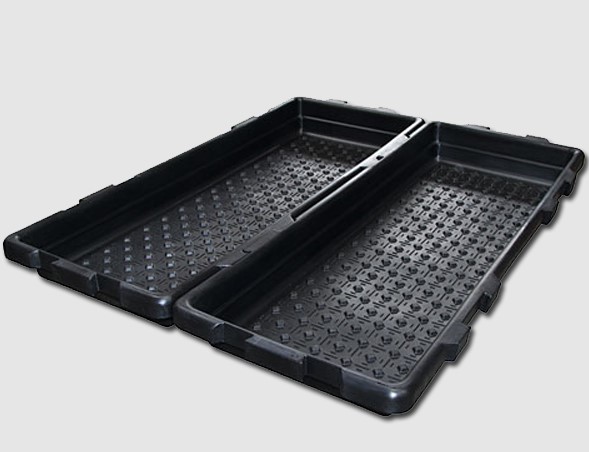REPORT: Keep fire out of the house: preventive raids are carried out in the Gomel region
A sad pattern that has been proven over the years: as soon as the thermometer goes down, the number of fires begins to grow. And this often happens because of the indifference of people to the state of their home and its "stuffing" - furnace and electrical equipment, and also because of a frivolous attitude to fire safety rules. In order to keep fire out of the house, a lot of preventive work is being carried out in the Gomel region. “These are inspection commissions and various raids during which households are examined. Rescuers conduct preventive conversations with people, check stove heating, tell how to safely operate the stove,” said Ksenia Shingirei, an official representative of the regional department of the Ministry of Emergency Situations. BelTA correspondents also joined one of these raids in Dobrush.
Pavel Lipov, First Deputy HEAD of the Regional Department for Emergency Situations, cites statistics along the way of the inspection commission: since the beginning of the year, 44 fires have occurred in the district, which is one case more compared to the same period in 2020. The death toll has dropped from 4 last year to 2 this year, but the number of injured has risen from 2 to 3.
We stop at Gomelskaya street. Here, Nadezhda Demkova, born in 1945, lives alone in a private house. Tatyana Novikova, inspector of the social assistance department at home, Tatiana Novikova, says that so far a neighbor is helping the pensioner to manage the household, but the issue is already being resolved with a social worker.
"Come in, kids, come in," the hostess breaks away from watching the TV show. A ginger cat is lazily watching the guests, stretching sweetly after an interrupted daytime sleep.
While the representative of the social service clarifies the nuances for the provision of financial assistance to the pensioner, the rescuers examine the stove and rough wood that heats the house.
"When checking households with such heating, we pay attention to the condition of the stove. it must be whitewashed, plastered, without cracks. This also applies to the chimney. We also pay attention to the condition of the doors, and also that there is a stoking sheet if the floor is wooden," describes the algorithm First Deputy Head of the Regional Department for Emergency Situations. They also check how combustible materials are stored, whether objects and materials are located nearby that should not be. Employees of the Ministry of Emergency Situations tell residents about safety measures: "The stove must be heated under constant supervision, minors should not be allowed in. It is forbidden to put firewood longer than the length of the firebox, use flammable and combustible liquids to ignite the stove - this can lead to burns."
Pavel Lipov adds that last month in the house of Nadezhda Fyodorovna, the inspection commission revealed minor violations of fire safety requirements. "For example, it was necessary to fix the oven doors. Grandmother was helped, now the shortcomings have been eliminated," he states.
The hostess is a little worried if everything is in order. She is assured that there is no reason to worry.
During the visit, the inspection commission handed over to the pensioner a new autonomous fire detector. "It is necessary for the early detection of a fire. If smoke suddenly comes out, the device will start beeping. If you sleep, it will wake you up. You will need to leave the room and call the fire department at 101, provide the address," Pavel Lipov recalls the rules of conduct.
The next address is the house on Krasnoarmeiskaya Street, where Valentina Sukhikh, a disabled person of the second group, and her sister, Lyubov Deeva, live.
“Earlier, here the commission revealed minor violations in stove heating - there were cracks, a small inflow sheet. In addition, according to the state program, a signal and sound device was installed in the house with an output to the facade, API.
"Remember that two hours before going to bed you need to stop burning the stove?" - asks the sisters Xenia Shingirei.
“And we don’t heat in the evening, only in the morning,” the hostesses assure.
A small remark comes from Pavel Lipov: you need to move the carpet away when burning the stove so that the coals do not bounce off.
“It was like that,” admits one of the sisters, pointing to the black dots-traces on the carpet.
The commission checks the work of the SZU and API and leaves memos to the housewives, which spell out the requirements and rules that must be observed when using stove and electrical equipment, as well as booklets with other important information.
An apartment in a five-story building in the Meliorator microdistrict is also becoming a safety route point. Previously, children in the family of Svetlana Zenova were recognized as being in a socially dangerous position. The children spent six months in the social and pedagogical center, in July the children returned to their mother. "There is increased attention to such families. They are examined at least once a month," emphasizes Natalya Bunder, chief specialist of the education department of the district executive committee.
"How are you? How are the kids?" - the guests of the hostess are interested from the threshold.
“The older daughter and son are now at school. The youngest and I are doing household chores,” the mother of many children replies.
When inspecting housing, great attention is paid to fire safety. Emergencies Ministry workers check an autonomous fire detector in a living room. There is a piercing sound. "Everything is in order, the device works well," says Xenia Shingirei. For older children, she gives information booklets and brochures on safety rules, bookmarks for books.
For the younger - thematic coloring. The kid at first carefully looks at the gift, but the fire engine and other special vehicles on the pages carry him away.
"I would like to say a big thank you to all our services - the education department, the commission on juvenile affairs, the regional socio-pedagogical center, lawyers. Everyone helped me a lot. During the time that the children were not with me, I rethought a lot, realized "- shared Svetlana.
“There are no questions for the family. Mom fulfills all the recommendations. We hope that everything will be fine here,” concludes Natalya Bunder.
Ksenia Shingirei draws attention: inspection commissions work with various categories of citizens. "There are people who lead an asocial lifestyle - they are once again reminded that smoking indoors is extremely dangerous, and in beds, places not intended for this, especially when intoxicated, - it is strictly forbidden," she explains, while we are driving to the five-story building on Prince Paskevich Street. Residents of the house still cannot remember the morning of last Sunday without anxiety. As reported, on November 21 at 7.23 a fire signal was received on line 101 on the second floor. Arriving employees of the Ministry of Emergency Situations found the hostess, born in 1959, sitting on the floor in the mind, took her out into the fresh air and handed her over to the ambulance. With a diagnosis of "poisoning by combustion products, burns of 3% of her body," the pensioner was hospitalized. 12 people were evacuated, including two children.
Today, black traces of flames on the facade and a pungent smell of burning in the entrance remind of the incident.
"It was such a terrible fire! Rescuers arrived quickly, well done. We were all so scared that it was just terrible! If the fire had reached the gas, it would have been the end of the whole middle. Thank God, it worked out," Tatyana Barashnova, who lives in the same building on the ground floor. The main version of the cause of the fire, according to experts, was careless handling of fire while smoking.
Preventive raids in the region will continue. Such work, representatives of various services are convinced, helps to prevent emergencies and human casualties.
Photo by Sergey KHOLODILIN,
BELTA.



























































